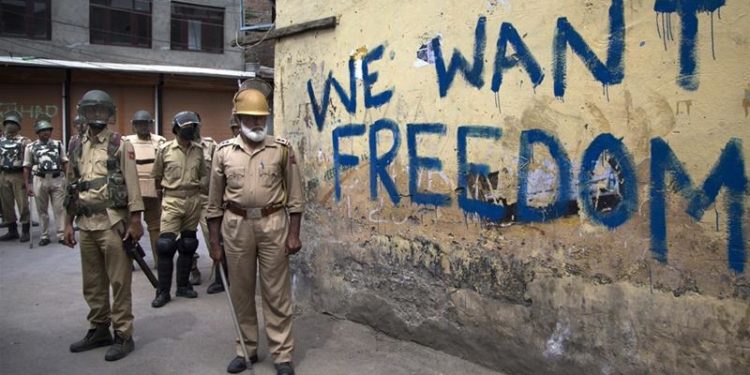CENTRAL NEWS
The war of Kashmir has claimed 60,000 lives over 6 decades. It is currently being occupied by India, China and Pakistan.
In 1947 Britain gave its colonies independence and partitioned the muslim poppulation of the Raj to Pakistan whilst the other religious groups would claim India. The process of migration of the religious groups to their designated countires cost the lives of 2 million people and a further 14 million were displaced. The region of Kashmir was free to decide its own future.
The Kashmir region, consisting of a muslim majority would have chosen to be administered by Pakistan. The Sikh ruler of the time, Hari Singh, decided the countries fate and declared that it would have independence. Pakistan deemed this unacceptable and invaded the region as the majority of the poppulation had been overlooked. In this wake, Hari Singh would flee to India and sign the Tashkent declaration, admitting Kashmir to the dominion of india in return for millitary defence.
1947 saw one of Kashmirs many wars with both India and Pakistan claiming the land to belong to them; this war ended after the United Nations demanded a ceasefire. At this point, India had captured most of the region. The partition created in the war remains.
Since then the region has seen many conflicts, protests, political clashes, opression and Human Rights violations; but no signs of actual war or solution.
The Mumbai attack of 2008, which killed 174 civillians sparked rumours of war; instead India responded by killing rebel commander Burhan Wani. The 22-year-old rebel commander and his two associates were killed by Indian troops on July 8, 2016 in a brief gun battle.
Since Indian security forces killed Wani, Kashmir has been wracked by uprisings against the state. At least 68 people – security personnel as well as civilians – have died in clashes between the army and the police on one side and young Kashmiris on the other. Thousands more have been injured.
After Wani’s death, Kashmir witnessed a fierce clampdown on telecommunications, with mobile internet services suspended and outgoing cell phone calls sporadically barred. The clampdown is a routine part of the Indian government’s strategy to deal with unrest in Kashmir – an effort to make it difficult for Kashmiris to coordinate or mobilise.
Pakistan later captured an Indian pilot but very quickly returned him as a “gesture of goodwill”.
This is first sign of de-escalation and a possible return to a fragile status quo. That is precisely what some Kashmiris say that they fear. “When they fly, I pray something happens now,” says Mohammad Ashraf Wani of the jets that woke him every night last week. “Our last hope is that war will solve this once and for all.”
Worst of all, the unsettlement of Kashmir is creating opportunities for DAESH, who have now announced to claim foothold in the region.
Islamic State recently announced the establishment of the new branch after the group was driven out from its so-called “caliphate” in Iraq and Syria. They pointed out that the new branch’s name is Wilayat al-Hind.




